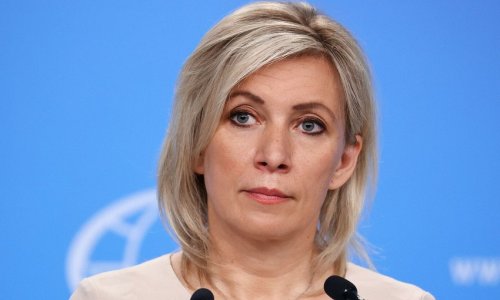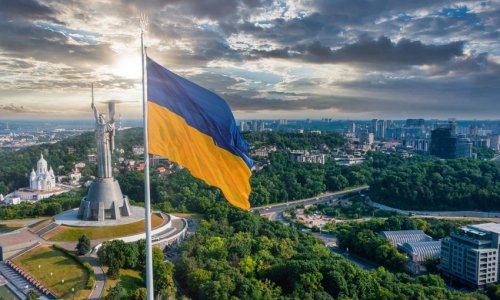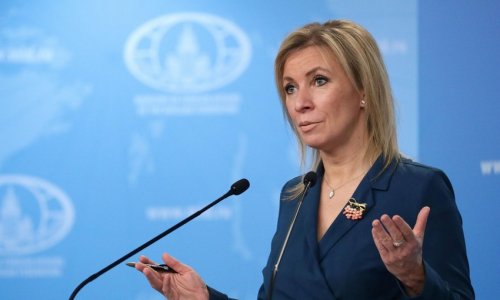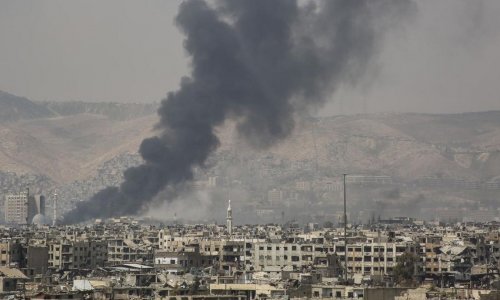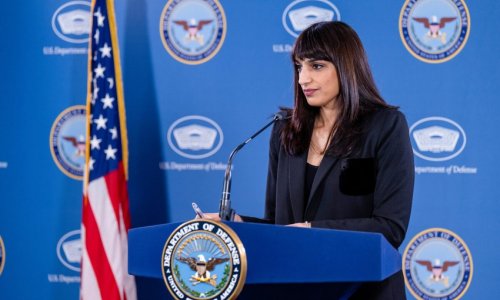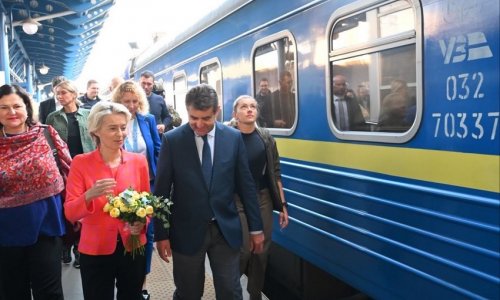Ukraine is in turmoil and probably will be for some time. The high-stakes brinksmanship between Kiev and Vladimir Putin’s Russia escalated this month when Putin sliced off a large chunk of sovereign Ukrainian territory, Crimea, while the United States and Europe did little or nothing to stop him. Some have suggested that Crimea is the new Sudetenland and Putin the chief authoritarian menace of the 21st century. Ukraine’s Jewish community, which still numbers more than 100,000, has much to say about Ukraine’s future, and Zissels is its most influential figure. He founded Ukraine’s first post-Soviet Jewish organization in 1988, and since 1991 he has been chair of the Vaad of Ukraine, the confederation of Ukrainian Jewish organizations. He is currently vice president of the World Jewish Congress and, since 2002, chair of the General Council of the Euro-Asian Jewish Congress.We met last Friday at YIVO, where Zissels had spoken the previous night at an event, well-attended by Russian-speaking Jews and others, titled “What Now? Jews and the Ukrainian Revolution 2014.” Zissels is busy, affable, and earnest; he has the dignity and pathos of a man who spent six years in Soviet prisons for “slanderous insinuations” against the Soviet state in the 1970s and ’80s. (In 1987 he was offered release from the Gulag if he signed a paper disavowing his political actions, but he refused.) He was a bit late for the interview, since he was detained uptown by a conference with the deputy foreign minister of Ukraine. Our talk was interrupted from time to time by calls from Ukrainian politicians.I wanted to know whether Zissels’ support for Maidan was still unshaken after recent developments, including the inclusion of Svoboda, which many see as an anti-Semitic party, in the post-Maidan Ukrainian government in Kiev. Zissels believes that his country’s current crisis is about much more than Ukraine. The world order, he thinks, is in more danger than it has been since World War II, as a result of Vladimir Putin’s threats against Russia’s neighbors. Europe, he warns, could be on the brink if the West fails to stand up to Putin’s aggression.The interview took place in Russian; Professor David Fishman of JTS served as interpreter.The Kiev government has blockaded Slovyansk, and the separatists have claimed that there have been attacks by the Pravyi Sector (Right Sector) in eastern Ukraine. Russian troops are massed on the border. Is it possible to avoid war?It’s not a simple question. The question is, what is Russia’s motivation? Russia doesn’t want to occupy Ukraine. Its goal is to control Ukraine. Russia is categorically opposed to Ukraine moving toward the West, especially into NATO and also into the E.U. They think that their security will worsen if Ukraine goes European. Rockets will stand on the border between Ukraine and Russia. They’re worried that Ukraine will become a successful European country, and that could become an example for Russia. They’re worried that Russia itself could collapse if Ukraine were successfully integrated into Europe and the West.Russia has created instability in eastern Ukraine in order to make Ukraine preoccupied with these problems, rather than occupying itself with integration into Europe. If Russia thinks that what’s going on now is sufficient to prevent Ukraine from moving into the West, they won’t do anything more. If they think that it isn’t enough, then they’ll go further.Is there anything that the E.U. and the U.S. could have done, but didn’t do, that would have helped to avoid the current situation?The first thing would have been to take an absolutely firm position against the Russian aggression—though not, of course, to engage in warfare. The economic sanctions should be more effective. Sanctions should affect not only those in Putin’s immediate circle, but all Russians, because 80 percent of the population of Russia supports this revanchist, aggressive activity.After World War II, a very complicated set of arrangements and agreements was built up to avoid a future war. The nonproliferation of nuclear weapons was based on agreements and guarantees. Putin is turning this all upside down. The Budapest agreement of 1994 in which Ukraine disarmed itself—Ukraine was the third-largest nuclear power in the world—was based on guarantees that were supposed to be given both by the U.S. and by Russia. And now countries that want to acquire nuclear weapons are going to say, “How can America convince us not to acquire nuclear weapons?” They’re going to say, “But you [America] didn’t help Ukraine. It gave up its nuclear weapons, and then when it was in danger you didn’t help them.”What are the feelings of the Russian-speaking minority in eastern Ukraine about the recent Russian moves, about the occupation of Crimea and the separatist movement in eastern Ukraine?There have been precise surveys on this question very recently. The Kiev International Institute of Sociology did a study of the opinions of Ukrainians in the East, that’s where most people are Russian speakers. It’s been highly exaggerated, this idea that they want to go over to Russia. They did over 3,000 interviews, in all eight provinces of the south and east, in 160 different places. It’s an impressive survey, a serious one.Would you give us some figures?What worries them in the east most of all is crime, banditry; second is the bad economic conditions. The third-biggest concern is the danger of civil war. Then comes receiving your salary or pension. The language question ranks much lower—only 6 percent are worried about it. What Russia says is a big problem, the right to speak Russian, is in fact not a problem.Most important is this: Only 11 percent of those easterners questioned approve of the entrance of Russian troops into Ukraine. Only 15 percent want their province to separate from Ukraine and join Russia. Seventy percent don’t want to join Russia. This problem of separatism was created artificially. It does not correspond to what eastern Ukrainians want. To say it does is a provocation. It’s propaganda.But even though they don’t want to become Russians, it’s clear that the inhabitants of the east have very little confidence or trust in the new Ukrainian regime. It’s absurd, but nonetheless, they don’t even consider the Ukrainian Parliament to be legitimate, even though they elected it, well before these events took place.Let’s shift to Western Ukraine. On March 26 leading Ukrainian Jews bought a full-page ad in the New York Times—an Open Letter of Ukrainian Jews to President Putin—and your signature is the first one on the letter. The letter asserted that the Maidan forces “include nationalistic groups, but even the most marginal do not dare show anti-Semitism or other xenophobic behavior.” How would you address skepticism about these sentences I’ve quoted from your Open Letter, given the anti-Semitic and xenophobic statements of certain groups not only during Maidan but earlier, in the Yushchenko years (2005-2010)? Yushchenko allowed celebrations of the World War II-era Bandera troops, known for their murderous attacks on Poles and Jews, and praise for the Waffen-SS Galicia, which was made up of Nazi-allied Ukrainians. Many American Jews see the Svoboda party, in particular, as having a history of anti-Semitism and xenophobic statements.Svoboda has a number of activists who have permitted themselves to make anti-Semitic remarks. But the popularity of the Svoboda party is half what it was during the elections [when it won a significant place in Parliament], and it is literally on the threshold for getting into the parliament in the next elections. During the years when Svoboda made those anti-Semitic statements, their popularity was 1.7 percent. Then Svoboda stopped making anti-Semitic comments, and their popularity increased. They should be grateful that they stopped saying these anti-Semitic things, because it made them much more popular. In the 1990s they scared people with their rather harsh statements, and that’s why they were unpopular. Then they became calmer.The core electorate of Svoboda is only 1.7 percent. Many others voted for them because they believed in their demagoguery. They said they would fight for the Ukrainian language, for the Ukrainian culture, more radically than Yushchenko did it. But in fact, no one saw them do anything.(tabletmag.com)ANN.Az
The Head of the Jewish Community of Ukraine Speaks Out Against Putin
World
15:30 | 30.04.2014
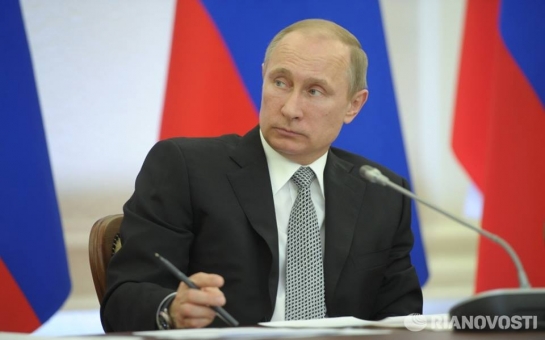
The Head of the Jewish Community of Ukraine Speaks Out Against Putin
In his support of the Maidan Revolution, the Ukrainian Jewish dissident Josef Zissels was out in front of other prominent Jews. Last March, he protested the Jewish Agency’s decision to hold a conference in Kiev, citing the “assault on political and social rights and freedoms of Ukrainian citizens” under then-President Viktor Yanukovych.
Follow us !

